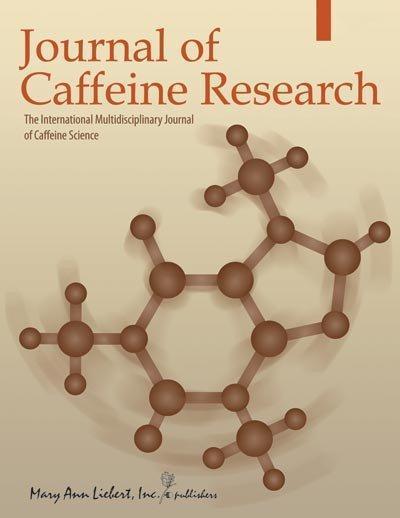New Rochelle, NY, September 9, 2013–Studies have shown that caffeine users can become dependent on or addicted to caffeine and may have difficulty reducing their consumption, as can occur with other drugs of dependence. A comprehensive review of the current evidence on caffeine dependence is presented in an article in Journal of Caffeine Research, a peer-reviewed publication from Mary Ann Liebert, Inc., publishers. The article is available free on the Journal of Caffeine Research website at http://www.liebertpub.com/jcr.
Steven Meredith and Roland Griffiths, Johns Hopkins University School of Medicine (Baltimore, MD), Laura Juliano, American University (Washington, DC), and John Hughes, University of Vermont (Burlington), reviewed the published research on caffeine dependence. In the article "Caffeine Use Disorder: A Comprehensive Review and Research Agenda" they describe the prevalence of caffeine dependence, clinically relevant indicators of functional impairment among caffeine users, and the criteria for making a diagnosis of caffeine use disorder.
The authors propose an agenda for future research that would include clinical, epidemiologic, and genetic investigations to lead to a better understanding of the clinical signs and the prevalence of caffeine dependence, as well as the risk factors and best approaches for treating caffeine addiction.

Journal of Caffeine Research: The International Multidisciplinary Journal of Caffeine Science is a quarterly journal published in print and online that covers the effects of caffeine on a wide range of diseases and conditions, including mood disorders, neurological disorders, cognitive performance, cardiovascular disease, and sports performance.
(Photo Credit: ©2013 Mary Ann Liebert, Inc., publishers)
"Caffeine-related problems are increasingly being seen as clinically important by addiction professionals," says Jack E. James, PhD, Editor-in-Chief of Journal of Caffeine Research. "The article by Dr. Steven Meredith and colleagues is timely in helping to clarify the dimensions of caffeine dependence problems, while also providing direction for future research in this neglected area."